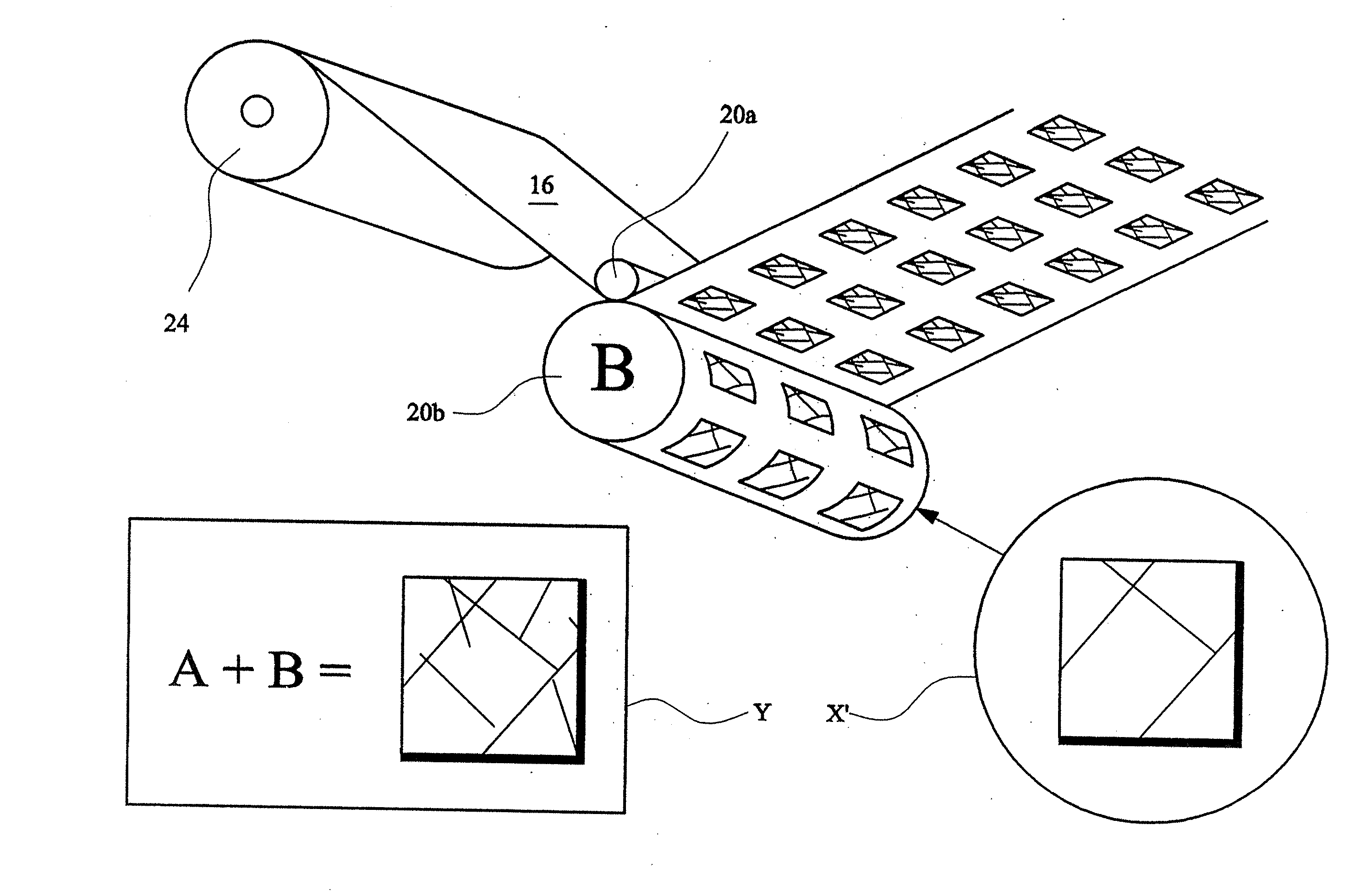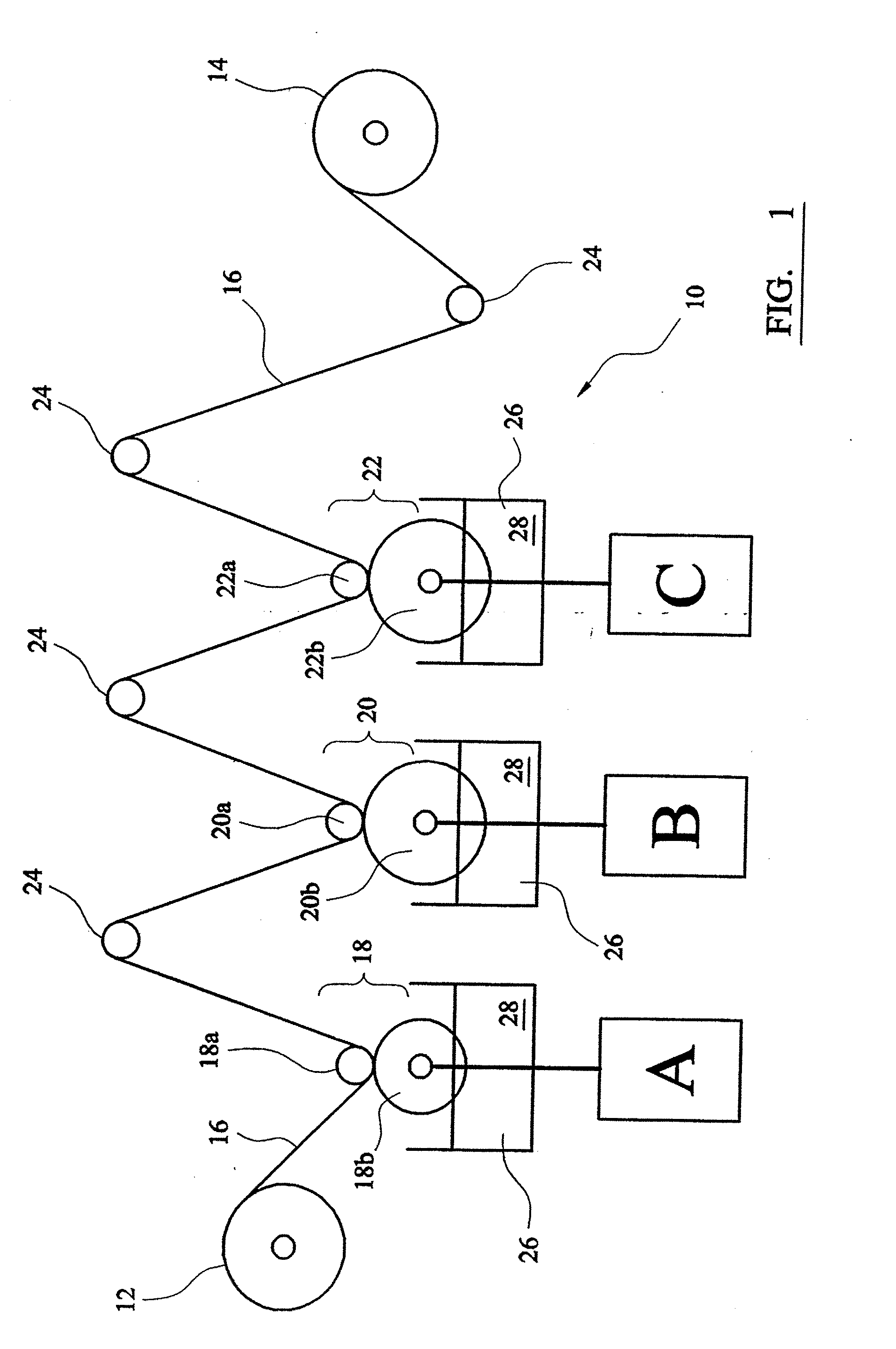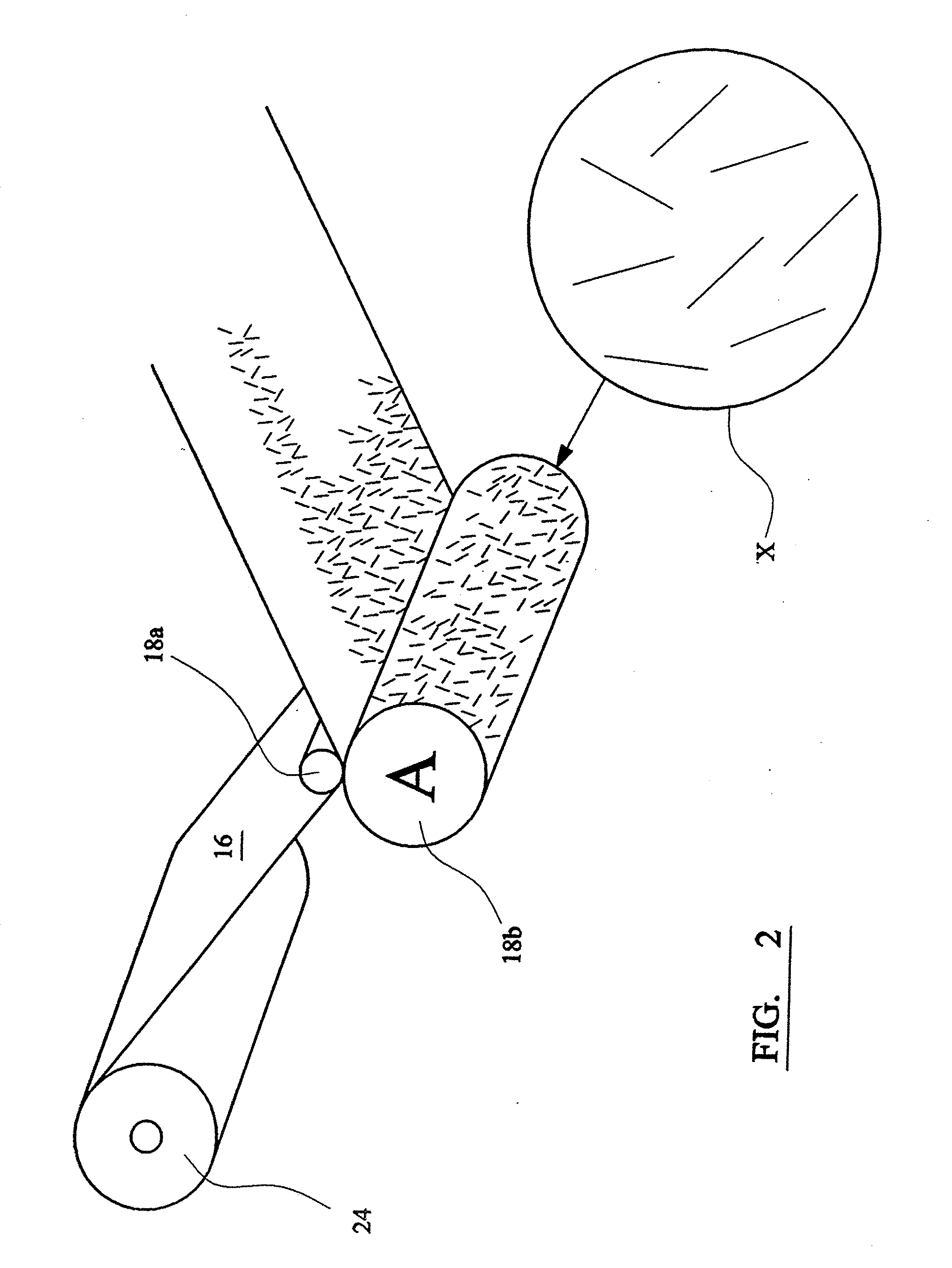Method and Apparatus for Making Articles
a technology of making methods and apparatuses, applied in the field of codes, can solve the problems of slightly different measurements, slow and time-consuming application of patterns in the manufacture of mass-produced objects, and inability to achieve the speed of speed, and achieve the effect of high cost effectiveness, easy to undertake and perform
- Summary
- Abstract
- Description
- Claims
- Application Information
AI Technical Summary
Benefits of technology
Problems solved by technology
Method used
Image
Examples
example 1
[0093]FIG. 7 shows examples of composite indicia that may be formed in accordance with the invention. In each case, the indicium evolves from stage A through stage C of FIG. 1. The indicium need not consist solely of lines, but may comprise other elements and shapes, such as dots, rectangles or ellipses, or indeed any combination of these elements.
example 2
[0094] FIGS. 8 to 11 show various articles which bear composite indicia in accordance with the invention. In FIG. 8 the indicium appears directly on the packaging 30, on tear tapes 32 and on a label 34.
[0095]FIG. 9 shows a relatively large composite indicium 37 on the outside of a cardboard box 36.
[0096]FIG. 10 shows a postage stamp 38 (which may be alternatively a tax stamp), a bank note 40 and an envelope 42, each bearing a composite indicium 39, 41, 43 in accordance with the present invention, whilst FIG. 11 shows an envelope, commonly referred to as a “document mailer”, 44, such as is used by a postal courier service for sending urgent documents, and which also bears a composite indicium 45 as described above.
example 3
[0097] A composite indicium was printed on one side of a tear tape, as commonly used for initiating opening of packaging wrap and the like. The tear tape had a width of approximately 2.9 mm. The indicium was printed using a gravure printing process to provide the separate patterns in black lines. Each of the printed composite indicium measured about 1.9 mm by about 1.9 mm. It should be noted that the size of composite indicia (markings) may be widely variable from substantially microscopic to large, i.e. multiple inches.
PUM
 Login to View More
Login to View More Abstract
Description
Claims
Application Information
 Login to View More
Login to View More - R&D
- Intellectual Property
- Life Sciences
- Materials
- Tech Scout
- Unparalleled Data Quality
- Higher Quality Content
- 60% Fewer Hallucinations
Browse by: Latest US Patents, China's latest patents, Technical Efficacy Thesaurus, Application Domain, Technology Topic, Popular Technical Reports.
© 2025 PatSnap. All rights reserved.Legal|Privacy policy|Modern Slavery Act Transparency Statement|Sitemap|About US| Contact US: help@patsnap.com



